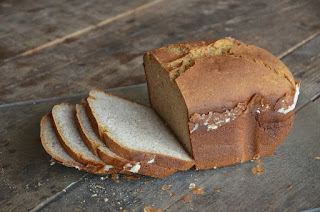A principios de 2019 España fue nombrado el país más sano
del mundo, sí, ¡en serio! (1) Si la imagen de este país ahora mismo es la de un
país sano, donde todo el mundo come bien y vive hasta 100 años, el futuro no es
tan atractivo. Hace un mes, la organización World Obesity (traducido como
Obesidad Mundial) lanzó su atlas global de obesidad infantil (2), en el cual lista información
sobre los porcentajes de obesidad en niños y niñas de 5 a 9 años y 10 a 19 años.
También se listan los datos de porcentaje de mujeres que fuman y los
porcentajes de adolescentes que no hacen suficiente actividad física.
En el 2013 en la Asamblea de Salud Mundial (World Health
Assembly), 193 países acordaron que los niveles de obesidad infantil en el año
2025 no deberían superar de los niveles del 2010 – 2012. Pero, por desgracia,
el documento de este año nos informa de que 80% de esos países tienen una
probabilidad de cumplir ese reto por debajo de 10% y, ningún país tiene una
probabilidad por encima de 50% de cumplirlo. En otras palabras, hace 6 años el
mundo acordó frenar el crecimiento de obesidad infantil y, lo más probable, es
que nadie lo consiga.
Los datos de España son los siguientes
% de niños con la edad 5-9 con obesidad en 2016
|
17.9%
|
% de niñas con la
edad 5-9 con obesidad en 2016
|
12.1%
|
% de niños con la
edad 10-19 con obesidad en 2016
|
10.6%
|
% de niñas con la
edad 10-19 con obesidad en 2016
|
6.3%
|
% de niños adolescentes
que no hacen suficiente actividad física en 2010
|
69.7%
|
% de niñas adolescentes
que no hacen suficiente actividad física en 2010
|
84.3%
|
% de mujeres con
obesidad en 2016
|
23.8%
|
Estimación de % de
mujeres fumadoras en 2020
|
25.7%
|
Los colores no son así como un homenaje a la bandera de
España, si no que representan números altos (rojo) y números medio-altos (amarillo).
Con estos datos de la situación actual, World Obesity asigna
cada país una puntuación de riesgo (CHO Risk) que cuantifica el riesgo de cada
niño y niña de tener obesidad. La puntuación máxima es 11 y España tiene 7.5,
un riesgo alto según World Obesity.
Además de un reportaje de la situación actual, hay unas
predicciones para el año 2030.
Predicción 2030 %
de niños y niñas de 5-9 con obesidad
|
18.6%
|
Predicción 2030 % de
niños y niñas 10-19 con obesidad
|
11.6%
|
Predicción 2030
numero de niños y niñas 5-9 con obesidad
|
383.815
|
Predicción 2030
numero de niños y niñas de 10-19 con obesidad
|
931.043
|
Con las predicciones de 2030, World Obesity le da a cada
país una probabilidad de cumplir el objetivo de que los niveles de obesidad infantil
en 2025 no sean más altos que en 2010-2012. España tiene una probabilidad de
cumplir este objetivo de solo 18%.
En resumen, mientras que los niveles de obesidad infantil en
España no son los más altos en el mundo, sí que son demasiados altos, y es muy
probable que vayan a aumentar en los próximos 10 años. Un niño/a nacido hoy en España
tiene una probabilidad del 68% de ser obeso/a. Otra estadística alarmante es la
del porcentaje de niño/as que no hacen suficiente actividad física,
especialmente las niñas. La actividad física es mucho más que una forma de
controlar el peso corporal. Los beneficios son muchos y es imprescindible que
encontremos una forma para aumentar los niveles de actividad física.
En fin, decimos que España es el país mas sano del mundo,
pero ¿no sería más correcto decir que España, en realidad, es el país menos insano?
Referencias
1. https://www.bloomberg.com/news/articles/2019-02-24/spain-tops-italy-as-world-s-healthiest-nation-while-u-s-slips
2. https://www.worldobesity.org/nlsegmentation/global-atlas-on-childhood-obesity


